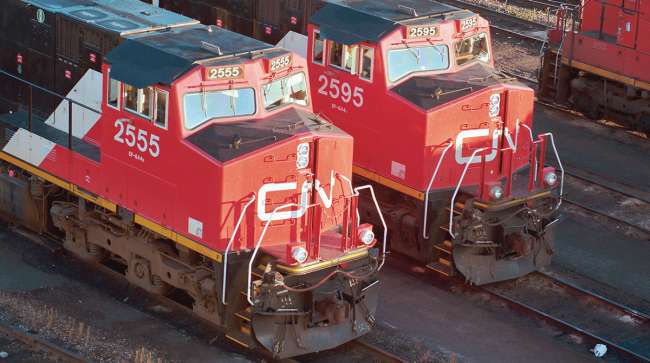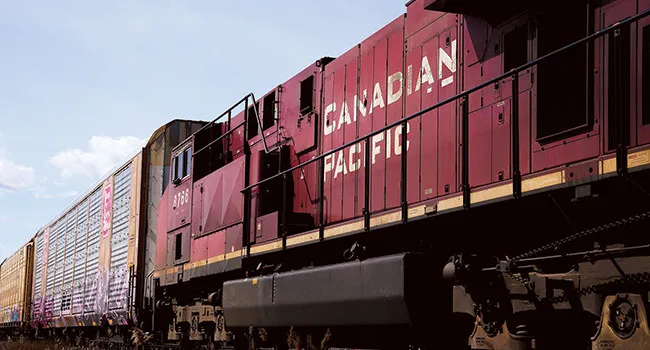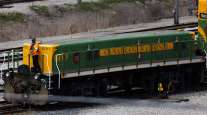Staff Reporter
Canadian National Issues Lockout Notice to Railway Teamsters

[Stay on top of transportation news: Get TTNews in your inbox.]
Canadian National Railway Co. issued a formal notice Aug. 18 that union-affiliated workers will be locked out in the coming days if a labor agreement is not reached.
The Teamsters Canada Rail Conference responded by instructing its members to prepare as if the lockout were a strike. The two sides negotiated over the weekend but made little headway. The lockout is scheduled to begin immediately after midnight Aug. 22.
“Despite negotiations over the weekend, no meaningful progress has occurred, and the parties remain very far apart,” Canadian National said in a statement. “Unless there is an immediate and definite resolution to the labor conflict, CN will have no choice but to continue the phased and progressive shutdown of its network, which would culminate in a lockout.”
The potential work stoppage involves Canadian National and Canadian Pacific Kansas City, Canada’s two largest railroads. Together, they handle about 40,000 carloads of freight daily, valued at about $1 billion. A prolonged disruption could significantly impact cross-border trade with the United States, affecting shipments of automobiles, auto parts, chemicals, forestry products and agricultural goods. Both railroads already have begun to restrict certain shipments of hazardous materials and refrigerated products in preparation for a possible work stoppage.

The potential work stoppage involves Canadian National and Canadian Pacific Kansas City, Canada’s two largest railroads. (The Canadian Press via Associated Press)
Canadian National also noted that it will continue with its previously announced network shutdown plans. The company asserted the progressive shutdown was necessary because of the threat of an unpredictable strike notice, and that it will help ensure the safety of communities and customer goods. Additional embargoes will be issued Aug. 19, it added.
RELATED: Labor Minister Not Intervening in Canada Rail Dispute
“We are writing to inform you that your bargaining committee was served 72 hours notice that CN will be locking out all running trades TCRC Members,” TCRC leaders said in a notice to members. “If we cannot reach a tentative agreement, the company will utilize their rights under the Canada Labour Code to remove our ability to come to work and earn a living. Specific questions can be directed to your local division executives, but you can expect the same requirements as if we were on strike, with minor changes to signage amongst other things.”
The Canada Industrial Relations Board ruled that a work stoppage by unionized railway workers could occur because it would not pose an immediate threat to public health and safety. The ruling included a 13-day cooling-off period before a work stoppage could occur. This effectively meant that a rail strike could happen by Aug. 22.

Seidl
“The Canadian Class I’s initiated embargoes of certain freight this week as a labor strike becomes increasingly likely,” TD Cowen analyst Jason Seidl wrote before the notice Aug. 16. “Canada’s industrial relations board had stepped away from prohibiting a strike, allowing action to proceed as early as Aug. 22. Recent freight embargoes are par for the course ahead of a strike date as a precautionary measure pertaining to hazmats.”
Seidl pointed out that embargoes aren’t necessarily an indication that a strike will occur. But he noted that the parties appear to be at an impasse. He also added that temporary freight diversions to the U.S. network are likely to show up in the coming weeks’ data and would likely intensify if a strike commences.
“Indeed, we have spoken with several industry contacts who indicate that shippers have begun to engage their contingency plans ahead of an expected shutdown,” Seidl wrote. “We view diversions from the Port of Prince Rupert [British Columbia] to the West Coast U.S. ports as one of the more logical switches shippers are expected to make.”
Want more news? Listen to today's daily briefing below or go here for more info:




